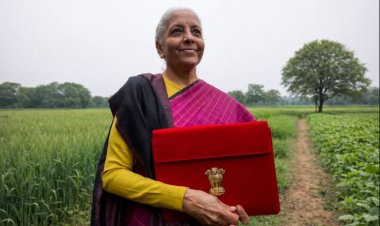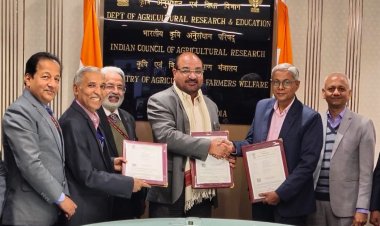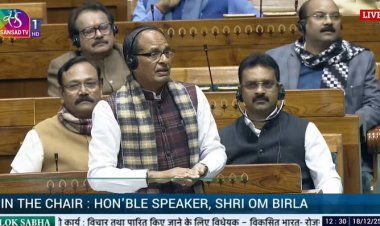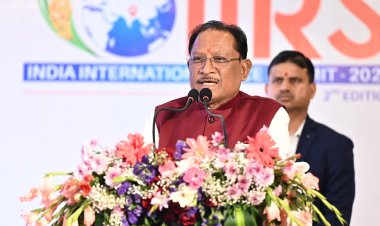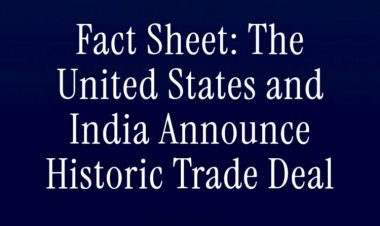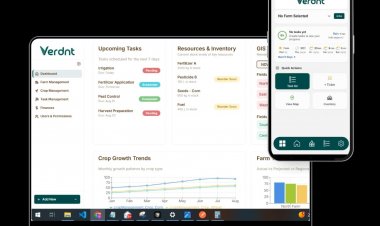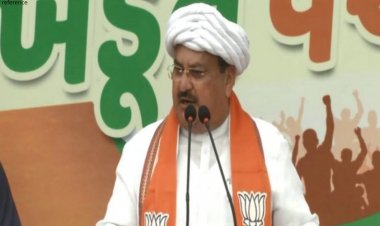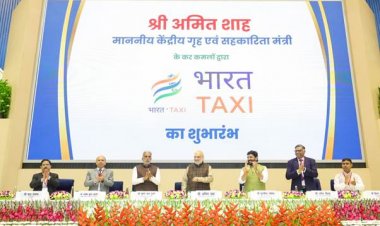Government Slashes Export Duty on Non-Basmati Parboiled Rice to 10 percent
The central government has slashed the export duty on non-basmati parboiled rice (sella rice) to 10%, down from the previous 20%. The Ministry of Finance's Department of Revenue announced the reduction through a notification issued on September 27, with the new rate taking effect immediately.
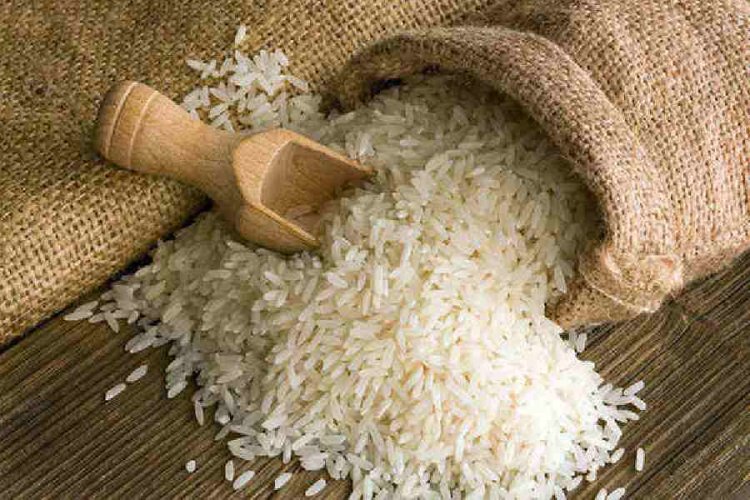
The central government has slashed the export duty on non-basmati parboiled rice (sella rice) to 10%, down from the previous 20%. The Ministry of Finance's Department of Revenue announced the reduction through a notification issued on September 27, with the new rate taking effect immediately.
The export duty on sella rice was originally imposed last year to curb rising rice prices in the domestic market. Around the same time, a minimum export price (MEP) of 1,200 dollars per ton was introduced for basmati rice, which was later reduced to 950 dollars per ton. The MEP was finally lifted earlier this month.
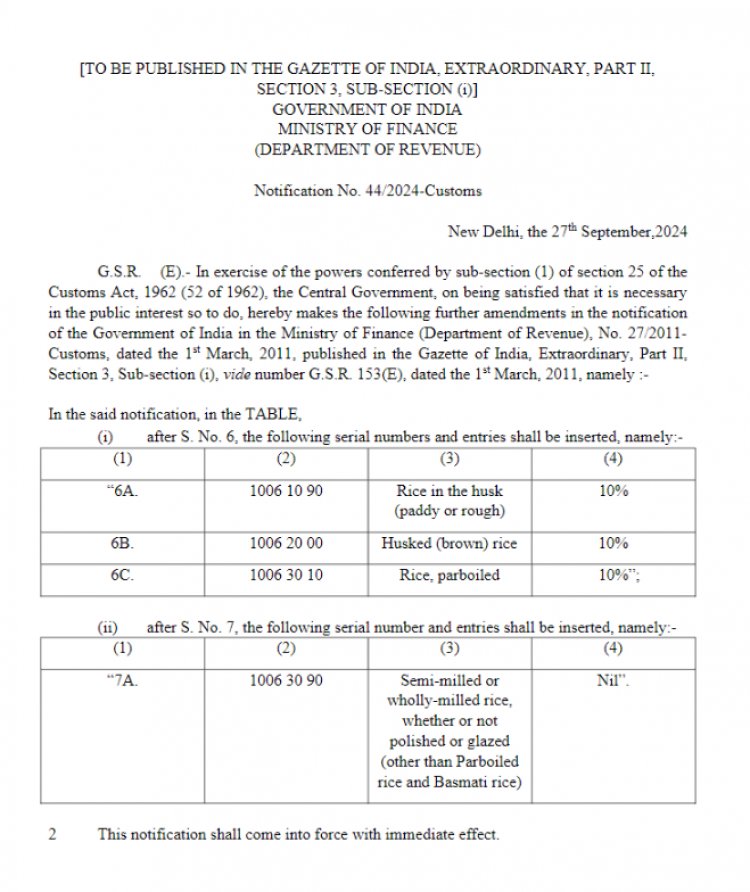
The current Kharif season has shown promise for rice production, with record paddy sowing acreage and favourable monsoon conditions. The government recently projected record rice production of 137.8 million tons for 2023-24. Exporters had long been calling for the lifting of the export ban on non-basmati rice; however, the government has, for now, opted only to reduce the duty on non-basmati parboiled rice. The move comes just days ahead of the Haryana state assembly elections, scheduled for October 5.
Earlier, the government lifted the MEP on basmati rice, removed the MEP on onions, and halved the export duty. Additionally, customs duty on crude and refined edible oil was increased by 20% to protect the interests of domestic oilseed farmers. These decisions are seen in the context of the upcoming state assembly elections in Haryana and Maharashtra.
India remains a dominant player in the global rice market, with approximately 17 million tons of rice exported last year. In the prior year (2022-23), India became the largest rice exporter, shipping about 21 million tons, which accounted for 40% of the global rice trade.
Vijay Setia, former president of the All India Rice Exports Association, welcomed the government’s move, stating that it would boost exports and help improve the prices farmers receive for their paddy. He suggested that further policy reforms could be made, particularly to allow private buyers more access to purchase directly from farmers to keep inflation in check and reduce the burden on consumers.
The government had previously removed the MEP of 950 dollars per ton on basmati rice on 13th September, as it was affecting exports and benefiting Pakistan. The cap had also caused basmati paddy prices to fall to Rs 2,500-3,000 per quintal, sparking discontent among farmers and traders in basmati-producing states like Haryana.
The MEP of 1,200 dollars per ton was imposed on basmati exports in August 2023, later reduced to 950 dollars per ton in October. Given the new season's supply of paddy and the current prices in the domestic market, the government decided to lift the MEP entirely, responding to the long-standing demand from Indian rice exporters.



 Join the RuralVoice whatsapp group
Join the RuralVoice whatsapp group



















